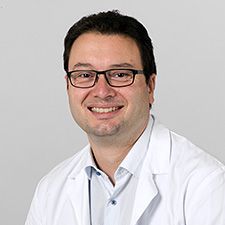Liver cell cancer usually develops in a previously damaged liver (liver fibrosis, liver cirrhosis of various causes). The initial diagnosis is often made after several years of medical history. Initially, HCC is usually treated locally through surgery or liver-directed therapies (ablation, SIRT, TACE). Liver transplantation can also be used in selected cases in the early stages. If it is no longer possible to control the disease with local therapies or if metastases are found outside the liver, systemic therapy is used, which has improved considerably in recent years.
At the Liver and Pancreatic Tumor Center, we offer the entire spectrum of screening, diagnostics, treatment and aftercare for liver and pancreatic cancer at all stages.

